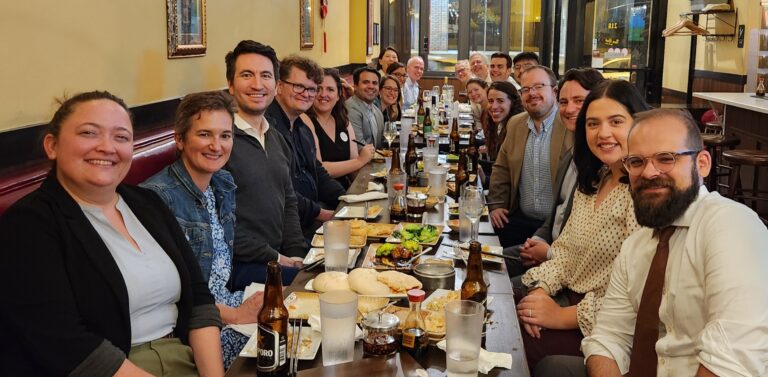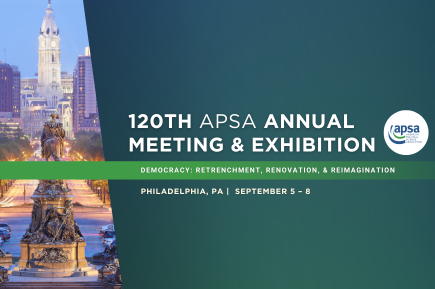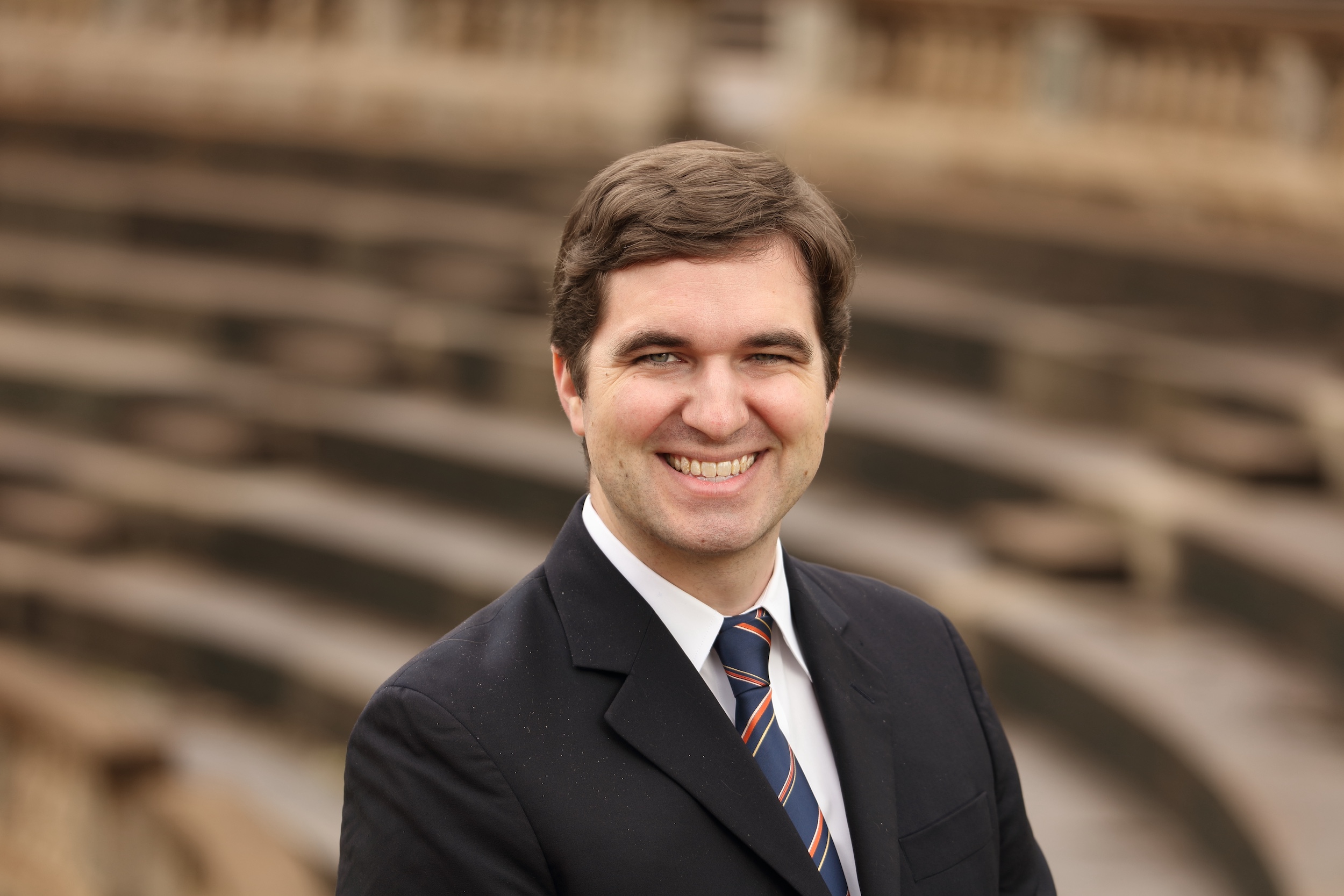CEL at APSA
On Friday, September 6, the Center for Effective Lawmaking (CEL) held a panel at the annual American Political Science Association (APSA) conference in Philadelphia titled “Effective Lawmaking and Compromise in Congress and the States”. Chaired by CEL Co-director Craig Volden of the Frank Batten School of Leadership and Public Policy at the University of Virginia, and with CEL Affiliate Sean Theriault of the University of Texas and CEL Co-director Alan Wiseman of Vanderbilt University acting as discussants, the panel featured political scientists who showcased their original research to provide possible answers to pressing questions posed by the U.S. Congress and state legislatures around the country.
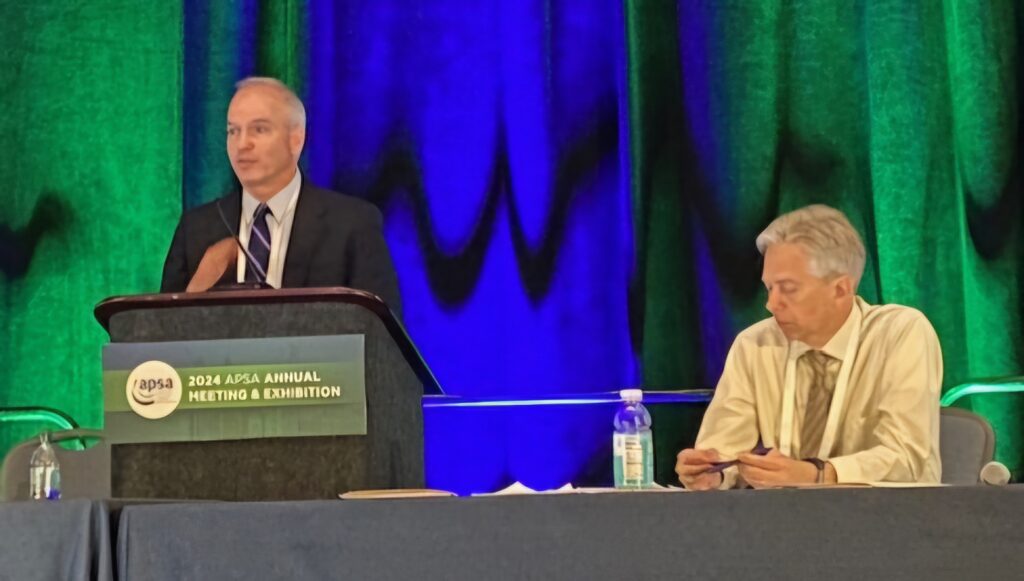
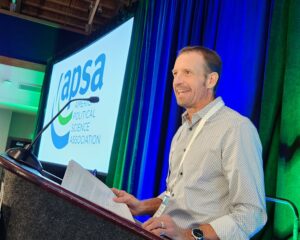
CEL co-directors Alan Wiseman and Craig Volden; CEL Affiliate Sean Theriault (from left to right).
The participants presented the following papers:
- Wealthy Challengers and Lawmaker Behavior (Ryan Mundy, Savannah Plaskon, and Danielle Thomsen) – This paper analyzes whether incumbent members of Congress scare off wealthy challengers with their own strong finances or through their efforts in office, as well as if wealthy challengers matter for lawmaker behavior.
- Legislative Effectiveness, Electoral Anticipation, and Garnering Campaign Advantage in the United States Senate (Carlos Algara) – This paper examines if U.S. Senators anticipate an electoral cost for legislative ineffectiveness and whether they garner electoral payoffs if they successfully act on this electoral incentive by being more effective prior to re-election.
- Enabling Compromise (Christian Fong, Nicolas Hernandez Florez) – This paper analyses how party leaders schedule votes on extreme, ideologically pure legislative proposals (a cover bill) before voting on compromise versions to reduce the punishment compromisers face from primary voters.
- Bipartisanship Secured: How Secure Majorities Lead to Cross-Party Collaboration (Mackenzie Dobson) – This paper examines whether the security of legislative majorities has an impact on bipartisan collaboration and legislative effectiveness.
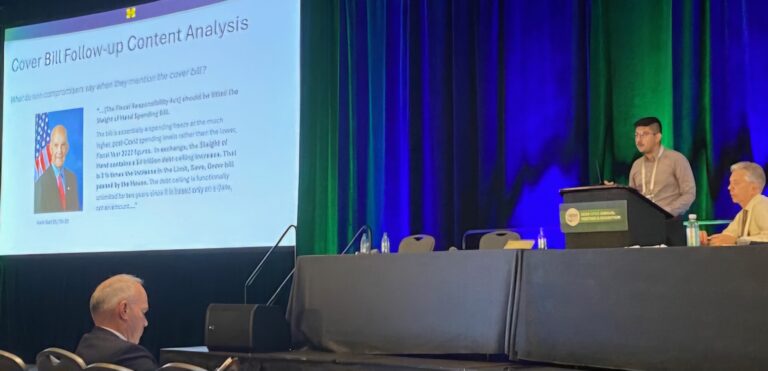
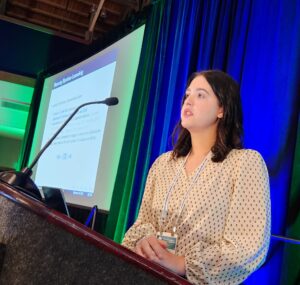
Presentations from Nicolas Hernandez Florez and Mackenzie Dobson (from left to right).
Afterward, the participants and CEL faculty affiliates attended a dinner to celebrate their work. The CEL is thankful to APSA for the opportunity to present their work and to expand the scope of legislative effectiveness research.
